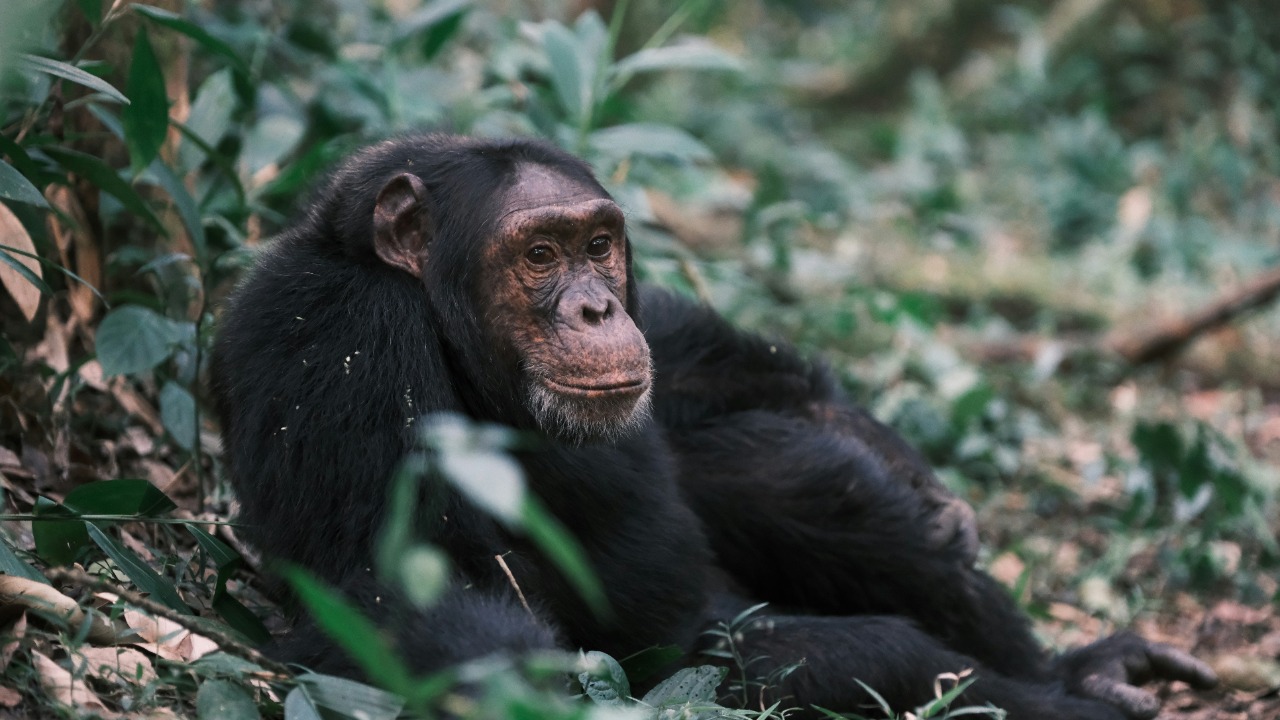
Recent research has turned the spotlight on our closest primate relatives, the chimpanzees, revealing their ability to engage in metacognition, a cognitive process once thought to be exclusive to humans. This ability to “think about thinking” allows chimps to weigh evidence and plan actions, challenging traditional views of intelligence and blurring the line between human and animal cognition.
Defining Metacognition in Animals
Metacognition, in essence, is the ability to monitor and control one’s own cognitive processes. It’s akin to human self-awareness, where we are conscious of our thoughts and can reflect upon them. This concept, once considered a unique human trait, is now being recognized in non-human primates. Behavioral indicators such as uncertainty monitoring suggest that animals like chimps are capable of metacognition.
The implications of this discovery are profound for theories of intelligence. It suggests a shift from instinct-driven decision-making, which has long been associated with animals, to a more reflective form of decision-making. This shift not only challenges our understanding of animal cognition but also prompts us to reconsider the boundaries of intelligence.
Early Evidence from Chimpanzee Studies
Early evidence of metacognition in chimps was reported in a 2013 study, which suggested that chimps also “think about thinking” akin to humans. The study involved experimental tasks that revealed the chimps’ ability to self-assess their knowledge. For instance, in memory recall challenges, chimps demonstrated an awareness of their knowledge gaps, indicating a level of self-awareness previously thought to be unique to humans.
These results established metacognition as a shared trait between humans and chimps, altering our understanding of primate cognition models. It suggested that our cognitive abilities might not be as unique as we once thought, but rather a part of a broader spectrum of intelligence shared with other primates.
Mechanisms of Thinking About Thinking
Chimps use metacognition to evaluate evidence before acting, as suggested by recent research. For instance, chimps have been observed pausing to assess options in problem-solving scenarios, indicating a level of reflective thinking. This behavior suggests that chimps are not simply reacting to stimuli but are actively evaluating their options before making a decision.
These cognitive processes are likely linked to specific brain regions. While it’s important not to overgeneralize, the neural similarities between chimps and humans suggest that similar brain regions may be involved in metacognition in both species. This further blurs the line between human and animal cognition, challenging our traditional views of intelligence.
Experimental Designs Revealing Chimp Intelligence
The methodologies used in these studies have been key to revealing chimp intelligence. The 2013 study, for instance, used perceptual and memory tasks to test metacognitive judgments. The 2025 study took a different approach, using reward-based trials to observe how chimps weigh evidence when planning actions.
Comparing the designs across these studies shows an evolving rigor in animal cognition research. The methodologies have become more sophisticated, allowing researchers to delve deeper into the cognitive abilities of chimps. This progress in research techniques is crucial for advancing our understanding of animal cognition.
Implications for Human-Animal Cognitive Boundaries
The discovery of metacognition in chimps, as evidenced by the 2013 findings, redefines our understanding of intelligence hierarchies. It suggests that humans are not the sole possessors of advanced cognitive abilities, but share these traits with other primates. This has significant implications for evolutionary biology, suggesting a shared ancestry in reflective thinking.
These findings also raise ethical considerations for animal research and welfare. Recognizing the advanced cognitive abilities of chimps calls for a reassessment of how we treat these animals, both in research settings and in the wild. It underscores the need for ethical guidelines that reflect our growing understanding of animal cognition.
Future Directions in Primate Research
The 2025 evidence of chimps planning actions through metacognition opens up new avenues for primate research. Future advancements may involve interdisciplinary approaches, integrating neuroscience and artificial intelligence to model chimp-like intelligence. This could provide valuable insights into the cognitive processes of chimps and other primates.
These advancements could also have practical applications. For instance, understanding chimp decision-making processes could inform conservation strategies, helping to protect these animals and their habitats. This highlights the broader implications of primate research, beyond simply advancing our understanding of animal cognition.
Challenging Traditional Intelligence Paradigms
The insights from the 2013 and 2025 studies challenge traditional paradigms of intelligence. They dismantle the notion of human exceptionalism in cognition, suggesting that we share more cognitive traits with other primates than we previously thought. This has been confirmed by peer studies, reinforcing the evidence of metacognitive abilities in chimps.
These shifts in understanding have far-reaching implications for various fields, including psychology and philosophy of mind. They prompt us to reconsider our definitions of intelligence and self-awareness, and to acknowledge the cognitive abilities of other species. As we continue to explore the cognitive world of chimps and other primates, we may find that the line between human and animal cognition is not as clear-cut as we once thought.
More from MorningOverview